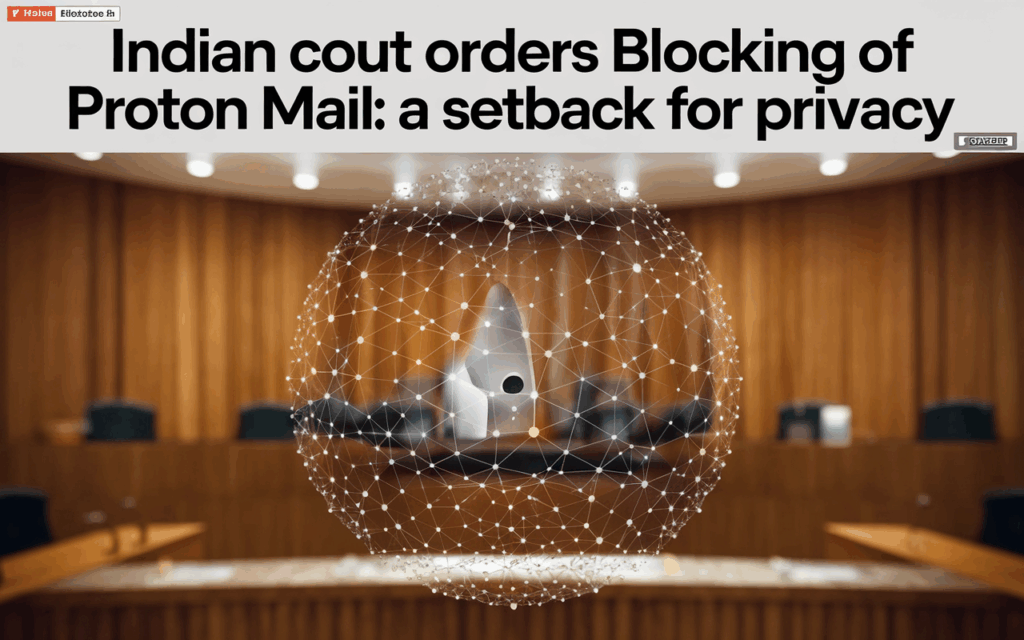🚫 Indian Court Orders Blocking of Proton Mail: A Setback for Privacy? 📨
In a move that has sent shockwaves through the tech community, the Karnataka High Court in India has ordered the blocking of the encrypted email provider Proton Mail across the country. 🧐 This decision comes as a response to a legal complaint filed by New Delhi-based M Moser Design Associates, which alleged that their employees received emails containing obscene and vulgar content sent via Proton Mail.
What Happened? 📝
The court's ruling was delivered during a live-streamed hearing, where Justice M Nagaprasanna mandated that the Indian government take action to block Proton Mail under the Information Technology Act of 2008. The local firm had expressed their frustration over Proton Mail's alleged refusal to share information about the sender of these offensive emails, even after a police complaint was filed.
Adding to the complexity, the Indian government indicated that while they would play a limited role in addressing the concerns, there may need to be cooperation with Swiss authorities for any necessary legal proceedings. This highlights the ongoing challenges and the potential jurisdictional issues surrounding data privacy and online communication. 🌐
A Pattern of Legal Challenges 🤔
This isn't the first time Proton Mail has found itself entangled in legal disputes in India. In fact, this is the second ruling in just as many years aimed at ousting the encrypted email service from the Indian market. Last year, the Tamil Nadu police also sought to block Proton Mail due to its use in sending hoax bomb threats to local schools. Fortunately, Swiss federal authorities intervened then, preventing the block from going into effect. 🤞
Proton Mail has consistently emphasized that such actions to block the service only hinder law-abiding individuals from communicating securely and do little to prevent malicious actors from carrying out their intentions with other non-secured email services. They rightly point out that cybercriminals can easily turn to alternative channels, while honest users suffer the consequences of such sweeping restrictions.
The Bigger Picture: Balancing Security and Privacy ⚖️
The ruling raises significant questions about the balance between online security, law enforcement, and individual privacy rights. In an age increasingly defined by digital communication, should governments have the authority to block secure platforms, even if the intent is to curb malicious activities? The concern here is not just about Proton Mail; it’s a reflection of a broader issue regarding personal privacy in the digital age.
As tech enthusiasts and advocates for online privacy, we must remain vigilant about these developments. Governments around the world are grappling with how best to regulate online services without infringing on the rights of citizens.
Conclusion: Keeping an Eye on Developments 👀
While the block on Proton Mail has yet to take effect, it remains a critical issue for tech users in India and beyond. The intersection of technology, law, and personal rights is a delicate balance that we all must navigate.
What are your thoughts on this ruling? Is it a necessary measure for safety, or does it signify an erosion of online privacy? Let’s discuss in the comments below! 💬
[#ProtonMail #PrivacyRights]

More Stories
Meta’s AR Ambitions and AI Safety: Insights from the Equity Podcast
Insight Partners Data Breach: A Wake-Up Call for Cybersecurity Awareness
Lovable’s Ascendancy: Anton Osika at TechCrunch Disrupt 2025